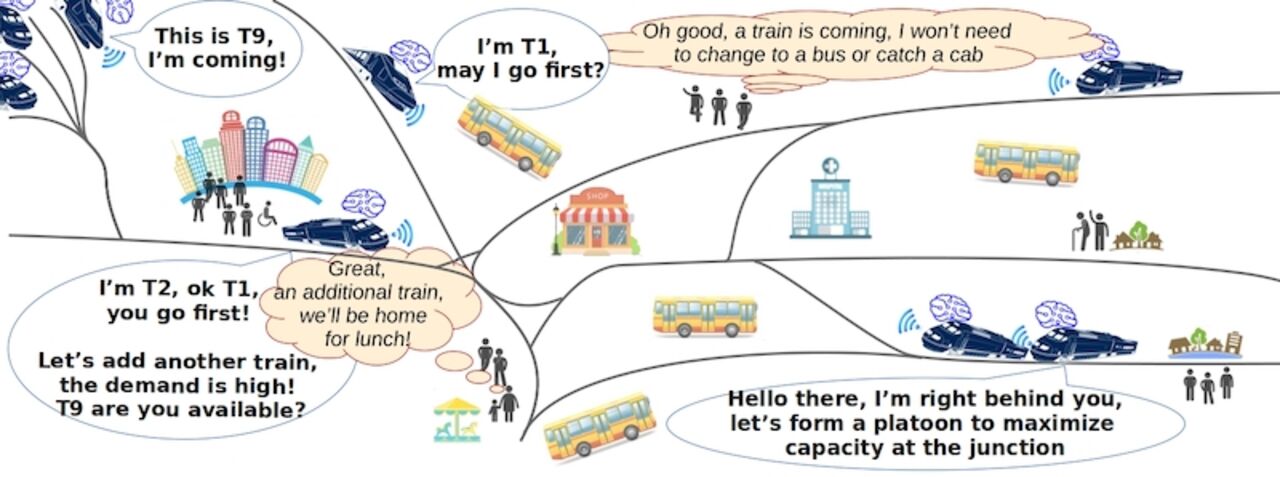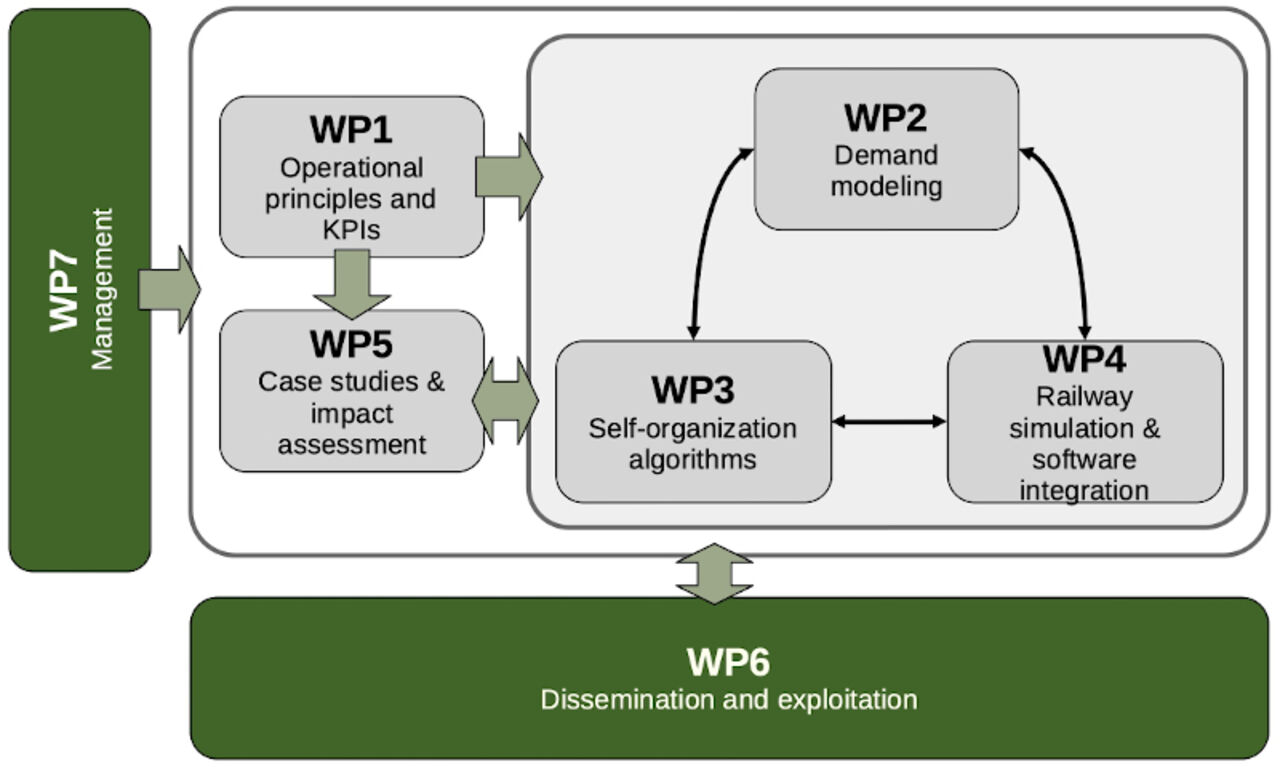SORTEDMOBILITY stands for Self-Organized Rail Traffic for the Evolution of Decentralized MOBILITY. It proposes a holistic approach for self-organizing management of public transport operations in urban and interurban areas, specifically focusing on rail transport as a mobility backbone.
In this approach, intelligent trains will operate in a self-organized manner to guarantee high levels of service in the multi-modal public transport context. The rail transport system will be more resilient, capable of self-adapting to an evolving environment with respect to the demand and in case of disruptions.
Furthermore, it will strive for multi-modal integration with other public transport modes enhancing multi-actor cooperation and market competitiveness.
A simulation assessment will allow the comparison of the self-organization approach with the traditional centralized one. It will integrate novel advanced methods for passenger demand prediction and rail traffic modeling, including new operational concepts such as train platooning.
Suitable KPIs will be introduced and measured in different case studies, in Denmark, Italy and France. They will illustrate how the new approach improves the public transport system and effectively reduces disturbance peaks and propagation. In a close collaboration between academic and key rail stakeholders, SORTEDMOBILITY will showcase the future of railways while producing a set of guidelines and recommendations to support the design and implementation of future public transport systems.


